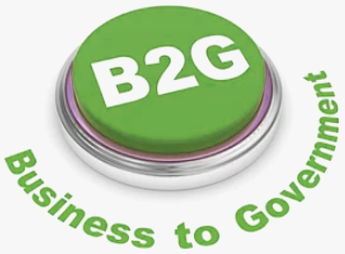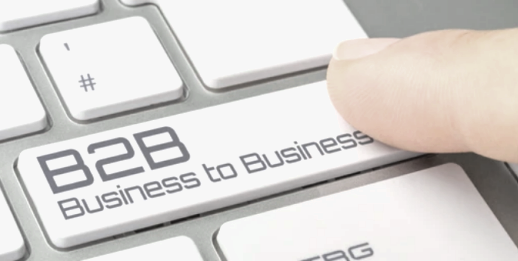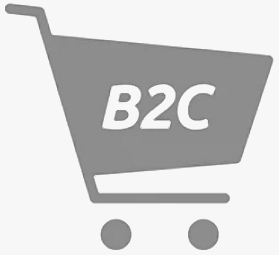Accredited InvestorsAltcoinAnatoli UnitskyAnti-Money Laundering (AML) In CryptoAPIArbitrageArtCoin TokenArticle DirectoryASICAuction Terminology GlossaryBasics of Stock Market InvestingBear MarketBest Crypto Payment Provider In the WorldBitcoinBlockchainBlockchain ConfirmationBlockchain Consensus MechanismBlockchain ForkBlockchain GlossaryBored Ape Yacht ClubBuild a Business That OutperformsBull MarketBuying SkyWay SharesByzantine Fault Tolerance (BFT) ExplainedCasascius CoinCentral Bank Digital Currency (CBDC)Centralized Crypto ExchangeCoinCoinsetCold WalletCollateralCommodity Futures Trading Commission (CFTC)Cross-Chain TechnologyCRUCrypto ExchangeCrypto GlossaryCrypto JokesCrypto Terms to KnowCrypto TickerCryptocurrencyCryptographyCryptojackingCryptounit BlockchainCryptounit GlossaryCryptounit ProgramdApp (Decentralized Application)Dead CoinDecentralized Exchange (DEX)Decentralized Finance (DeFi)Difference Between Bitcoin and EthereumDifferent Ways of Investing MoneyDigital CurrencyDistributed LedgerDo Your Own Research (DYOR)Dollar Cost Averaging (DCA)Dow Jones Industrial Average (DJIA)EncryptionERC-20ERC-721EthereumEvoScentFear Of Missing Out (FOMO)Fear, Uncertainty and Doubt (FUD)Fiat MoneyFNT Fintech CompanyGenesis BlockGlobal Unit PayGlossary of Banking TermsGlossary of Business TermsGlossary of Financial TermsHalvingHODLHot WalletHow Do I Start InvestingHow Rich is Satoshi Nakamoto?How to Create a BlockchainHow to Find Private InvestorsHow to Get Into FintechHow to Program Smart ContractsI Am Thrilled to Be a Part of This Global ProjectInitial Coin Offering (ICO)Initial Public Offering (IPO)Initial Token Offering (ITO)Innovation Basalt TechnologyInnovative Transportation TechnologiesInternational Bank Account Number (IBAN)Investing in Gold Mining StocksInvesting in Gold MiningJagerJoy of Missing Out (JOMO)Know Your Customer (KYC)LedgerLiquidity in CryptocurrencyMaker and Taker Fees in Crypto TradingMarket Capitalization (Market Cap)Meme CoinMetal Credit CardMetaMaskMillenials Now Have Access to Generational WealthMy Best Investment EverNew Digital EvolutionNFT GlossaryOff-Chain TransactionsOn-Chain TransactionsOpen Edition NFTPeer-to-Peer (P2P)Personal Loan GlossaryProbably the Best STO on the MarketProof of Stake (PoS)Real Estate Glossary of TermsReal Estate Investing GlossaryRebase TokenSecurities and Exchange Commission (SEC)Security Token ExchangesSecurity Token Offering (STO)Soulbound Decentralized Identities for Security TokensSoulbound ID Launch by Stobox Proves a SuccessSoulbound TokensStoboxStock Market GlossaryTestimonialsTether Platform and Token (USDT)UnitEx ExchangeUnitsky String TechnologiesUNTBUSDUValidatorWe Started Investing When We Were 25What are Blue Chip NFT?What are Blue Chip Stocks?What are Crypto Assets?What are Crypto Smart Contracts?What are CryptoPunks NFT?What are Digital Assets?What are Digital Collectibles?What are Gas Fees?What are Gas Wars?What are Hashmasks?What are Non Fungible Tokens?What are Non-Sufficient Funds (NSF)?What are Soulbound Tokens (SBT)?What are Stablecoins in Crypto?What are Transactions Per Second (TPS)?What are Utility NFTs?What are Utility Tokens?What Does Burning Crypto Mean?What Does Diamond Hands Mean?What Does Paper Hands Mean?What Does To The Moon Mean?What Does WAGMI Mean?What Happened to Satoshi Nakamoto?What is a 51% Attack?What is a Baby Boomer?What is a Backlink?What is a Banner?What is a Barcode?What is a Bid-Ask Spread in Crypto?What is a Block in Blockchain?What is a Block Reward?What is a Blockchain Address?What is a Blockchain Node?What is a Blockchain Oracle?What is a Blog?What is a Bond?What is a Bot?What is a Broker?What is a Business Accelerator?What is a Cash Cow?What is a Commercial Bank?What is a Commodity?What is a Con?What is a Credit?What is a Credit Limit?What is a Credit Rating?What is a Crypto Airdrop?What is a Crypto Bridge?What is a Crypto Scam?What is a Crypto Token?What is a Crypto Wallet?What is a Crypto Whale?What is a Crypto Winter?What is a Cryptocurrency Public Ledger?What is a Cryptocurrency Roadmap?What is a DAO?What is a Dark Pool?What is a Day Trader?What is a Dead Cat Bounce?What is a Default?What is a Derivative?What is a Digital Credit Card?What is a Fiscal Quarter?What is a Fungible Token?What is a Governance Token?What is a Grace Period?What is a Hard Fork?What is a Hot Wallet?What is a Hybrid Blockchain?What is a Hybrid PoW/PoS?What is a Joint Account?What is a Market Cap?What is a Merkle Tree in Blockchain?What is a Mining Farm?What is a Nonce? What is a PFP NFT?What is a POS System?What is a Prepaid Card?What is a Private Blockchain?What is a Private Key?What is a Public Blockchain?What is a Public Key?What is a Reserve Currency?What is a Ring Signature?What is a Routing Number?What is a Rug Pull in Crypto?What is a Safe Deposit Box?What is a Satoshi?What is a Security Token?What is a Seed Phrase?What is a Shitcoin?What is a Sidechain?What is a Soft Fork?What is a Spot Market?What is a State Bank?What is a SWIFT Code?What is a Tax Identification Number (TIN)?What is a Time Deposit?What is a Transaction Account?What is a Variable Interest Rate?What is a Virtual Assistant (VA)?What is a Virtual Card?What is a Virtual Currency?What is a Visa Card?What is a Whitelist in Crypto?What is a Whitepaper?What is Accounts Payable (AP)?What is AMA in Crypto?What is Amortization?What is an Accrual?What is an ACH Transfer?What is an Actuary?What is an Addendum?What is an Algorithm?What is an Angel Investor?What is an Annuity?What is an Asset?What is an ATM?What is an Atomic Swap?What is an Audit?What is an Avatar?What is an EIN?What is an Embargo?What is an Entrepreneur?What is an IDO (Initial Dex Offering)?What is an Interest Rate?What is an Internet cookie?What is an Investment Bank?What is an NFT Drop?What is an NFT Floor Price?What is an Ommer Block?What is an Orphan Block?What is an Outstanding Check?What is an Overdraft?What is Artificial Intelligence (AI)?What is B2B (Business-to-Business)?What is B2G (Business-to-Government)?What is Bartering?What is Bitcoin Dominance?What is Bitcoin Pizza Day?What is Blockchain Immutability?What is Blockchain Used For?What is BRICS?What is Business-to-Consumer (B2C)?What is C2C (Customer to Customer)?What is Capitalism?What is Catfishing?What is CFD Trading?What is Check Kiting?What is Cloud Mining?What is Communism?What is Content Marketing?What is Decentralization in Blockchain?What is DeFi in Crypto?What is Delisting?What is Depreciation?What is Digital Marketing?What is Diversification?What is Double Spending?What is Dumb Money?What is Dumping?What is Earnings Per Share (EPS)?What is Economics?What is Email Marketing?What is Equity?What is Etherscan?What is Fintech?What is Foreign currency?What is Forex?What is Fundamental Analysis (FA)?What is GameFi?What is Generative Art NFT?What is Gwei?What is Hard Currency?What is Hash Rate?What is Hashing in Blockchain?What is Inflation?What is Initial Game Offering (IGO)?What is Interest?What is Interest Income?What is Mainnet?What is Mastercard?What is Metaverse in Crypto?What is Mining in Cryptocurrency?What is Minting NFT?What is Mobile Banking?What is Money Laundering?What is NFT Alpha?What is NFT Metadata?What is NFT Rarity?What is NGMI Meaning?What is Nominal Interest Rate?What is Online Banking?What is Open-End Credit?What is OpenSea NFT Marketplace?What is Personal Identification Number (PIN)?What is Play-to-Earn?What is Polygon?What is Proof of Authority (PoA)?What is Proof of Work (PoW)?What is Public Key Cryptography?What is Pump and Dump?What is Quantum Computing?What is Refinancing?What is Retail Banking?What is Ripple?What is Sharding?What is Slippage in Crypto?What is Smart Money?What is Solvency?What is Soulbound ID?What is SSL?What is Staking in Cryptocurrency?What is Technical Analysis (TA)?What is Testnet?What is the Ask Price?What is the Better Business Bureau (BBB)?What is the Bid Price?What is the Dark Web?What is the InterPlanetary File System (IPFS)?What is the Gold Standard?What is the Lightning Network?What is the Prime Rate?What is the Sandbox?What is the Secondary Market?What is the World Bank?What is Tier 1 Capital?What is Tokenomics?What is TRC-20?What is Universal Banking?What is Unspent Transaction Output (UTXO)?What is Usury?What is Volatility in Crypto?What is Wash Trading?What is Web3?What is Whisper?What is XRP?What is Zero-Knowledge Proof (ZKP)?Who is Beeple?Who is Satoshi Nakamoto?Who is Vitalik Buterin?Why Tokenization is a Safe HavenWhy You Should Try Your Hand at Trading
What is B2G (Business-to-Government)?
- Home
- Glossary of Business Terms
- What is B2G (Business-to-Government)?
B2G represents a significant portion of business.

The federal government allocates a considerable amount of its budget for purchasing goods and services from private sector businesses, including small business suppliers.
What is B2G (Business-to-Government)?
B2G, or Business-to-Government, is a type of commerce in which private sector businesses sell products or services to government agencies. The relationship between businesses and government agencies differs from the typical Business-to-Consumer (B2C) or Business-to-Business (B2B) relationships, as the government acts as a single buyer that has specific regulatory requirements.
B2G transactions can be complex, as they often involve high-value contracts with detailed specifications, unique pricing structures, and strict delivery timelines. These transactions also require businesses to have an in-depth understanding of the government's procurement process, as well as the regulations and policies that govern the procurement of goods and services by government agencies.
Businesses that sell to the government range from small and medium-sized enterprises to large corporations, providing a wide range of products and services, from technology and consulting services to construction and transportation services. Some businesses even specialize in providing solutions specifically tailored to meet the unique needs of government agencies.
One of the primary reasons that businesses pursue B2G transactions is that the government is a reliable and stable customer. Government agencies are often required to have a long-term strategic plan, which provides businesses with greater predictability and stability. Additionally, B2G transactions can lead to significant revenue for businesses that are successful in winning government contracts.
To engage in B2G transactions, businesses must comply with specific regulations and policies that govern government procurement. These regulations and policies vary by country, state, and municipality, but generally, they aim to ensure that the procurement process is fair, transparent, and competitive. The government procurement process often involves multiple stages, including a Request for Information (RFI), Request for Proposal (RFP), and Request for Quotation (RFQ).
Advantages and Challenges of B2G Contracting
Businesses that typically interact with other businesses or consumers may face unexpected challenges when working with government agencies. The government is known to take longer than private companies to approve and initiate projects, with layers of regulations that can slow down the contracting process. While government contracts may require additional paperwork, time, and vetting, there are advantages to providing goods and services to the public sector.
Government contracts are usually larger and more stable than comparable private-sector work. A company with a history of successful government contracting often has a higher chance of securing the next contract. Moreover, federal requirements often mandate that certain amounts of appropriated funds must be spent on contracts with small businesses, providing smaller businesses with an advantage in B2G activities, or at least offsetting some of the benefits that large, well-established government contractors may already have.
To qualify as a small business contractor, a business must register correctly as such and demonstrate that it is independently owned and operated and contributes significantly to the U.S. economy, among other requirements. Additionally, federal laws and regulations often require certain amounts of spending to be directed towards politically favored groups in society, such as veterans, women, and racial or ethnic minorities.
How Businesses Can Secure Government Contracts
Businesses that wish to secure contracts with the government must navigate a specific process that can differ from contracting with private companies. Generally, governments solicit services from the private sector through requests for proposal (RFPs). To increase their chances of being awarded a contract, businesses must first identify relevant RFPs and submit competitive proposals.
One resource businesses can use to identify government contracts is the GSA website, GSAAdvantage.gov. This website is a shopping portal for government agencies and provides insight into the range of products purchased by the federal government. However, given the vast number and variety of purchasing requirements at the federal, state, and local levels, there are several online platforms dedicated to matching businesses with government agencies. These platforms, such as periscopeholdings.com, bidsync.com, thebidlab.com, and findrfp.com, offer access to information on current government contracts.
By utilizing these resources and preparing competitive proposals, businesses can successfully secure government contracts and tap into a stable and lucrative market.
The Bottom Line
B2G is a type of commerce in which businesses sell products or services to government agencies. B2G transactions can be complex, and businesses must have an in-depth understanding of government procurement regulations and policies to succeed in this market. However, the rewards of engaging in B2G transactions can be significant, providing businesses with a reliable and stable customer and the potential for significant revenue.
Related Articles

What is B2B (Business-to-Business)?
This type of transaction is different from B2C, or business-to-consumer, transactions where companies sell directly to individual consumers. B2B transactions are often more...

What is Business-to-Consumer (B2C)?
This requires them to have a deep understanding of consumer behavior, demographics, and psychographics, which will enable them to tailor their products and services...
- Home
- Glossary of Business Terms
- What is B2G (Business-to-Government)?